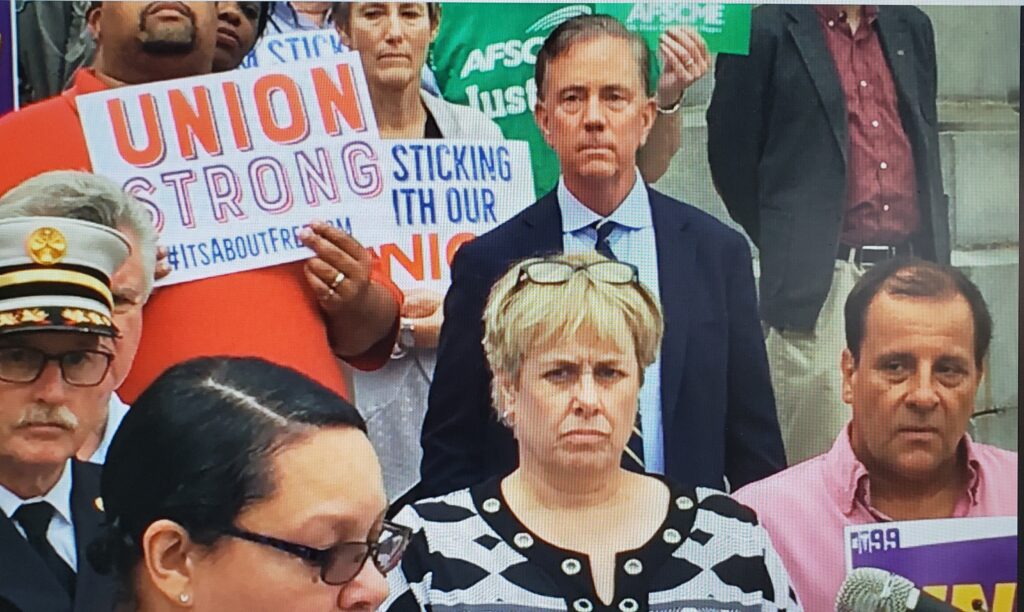
Anyone paying attention to state government last week might have been shocked by the disclosure from the state Office of Fiscal Analysis that Governor Lamont’s proposed contract with the state employee unions will raise state government’s labor expenses by nearly $2 billion over four years.

Announcing the contract six weeks ago, the governor said nothing about its likely cost. Had he even calculated the cost? Or did he care only about satisfying the state employee unions and mobilizing them for his re-election campaign and the campaigns of his fellow Democrats for the General Assembly and Congress?
Lately the governor has been boasting about cutting taxes by using state government’s ephemeral budget surplus, largely the result of billions of dollars in emergency aid from the federal government. But as Republican state legislators note, the governor’s gift to the state employee unions will cost far more than that tax relief. The gift also will weigh heavily on future administrations and legislatures, inclining them to repeal the tax relief after the election.
The contract is estimated to raise state employee compensation by as much as 15%. The governor says this largesse is needed for state government to retain and recruit skilled workers on the eve of a large wave of retirements. But that wave is expected not because employment in the private sector is so attractive for state government employees but because their own retirement benefits are so generous.
State government is not yet suffering the “Great Resignation” that affects private-sector employment. To the contrary, for two years state government employees have enjoyed complete insulation against the dislocations suffered by private-sector workers during the virus epidemic. While private-sector workers lost jobs, working hours, and income no employee of government in Connecticut did. That insulation will remain a unique and lucrative if untabulated fringe benefit.
With the new contract the governor has abandoned the public interest.
Will Democratic legislators have the courage even to question the new contract and thereby risk the loss of state employee union support? Will Republican legislators and the party’s likely candidate for governor, Bob Stefanowski, have the courage to press the contract issue throughout the upcoming campaign?
Or are the Republicans too scared of the unions as well, though they would never get the union votes anyway?
Do many Republicans even realize that the government employee unions are the majority party’s army and that the new state employee union contract is effectively a one-sided mechanism of public financing of political campaigns?
![]()

